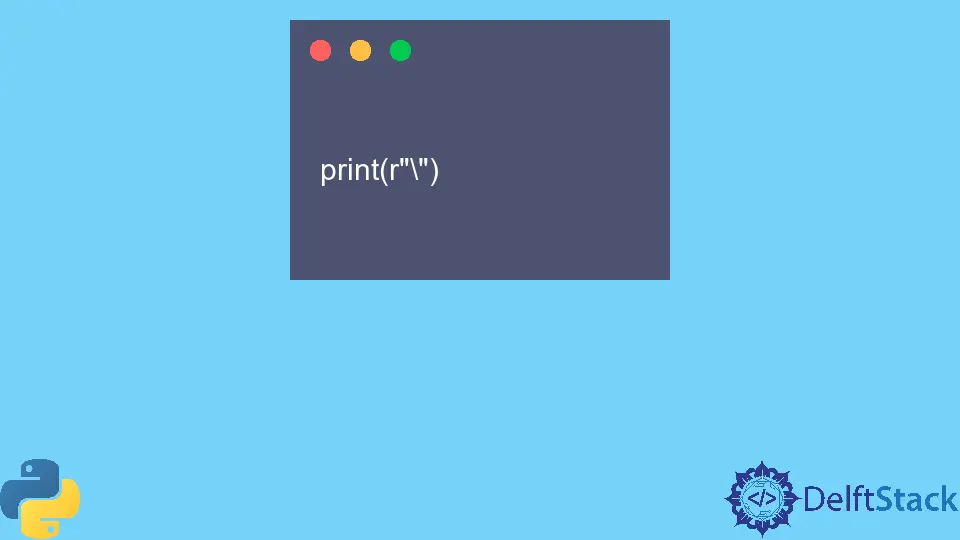Python 中的原始字串
Lakshay Kapoor
2023年1月30日

在 Python 中有很多表示字串的方法。表示字串的一種方法是將它們轉換為原始字串。
本教程將在 Python 中定義一個原始字串。
Python 中的原始字串
Python 中的原始字串只是任何以 r 或 R 為字首的普通字串。字串中出現的任何反斜槓 (\) 都被視為真正的或文字字元。例如,如果字串中間有 \n 或 \t,它將被視為一個字元,而不是 newline 或 tab 字元。
讓我們舉一個例子,在字串之間使用換行符\n,而不用 r 或 R 作為字串字首。
print("Hi\nHow are you?")
輸出:
Hi
How are you?
現在讓我們用原始字串字元 r 作為整個字串的字首。
print(r"Hi\nHow are you?")
輸出:
Hi\nHow are you?
如你所見,換行符 \n 被視為文字字串而不是某些特殊字元。
Python 中的原始字串無效
單個反斜槓 \ 在 Python 中不被視為有效的原始字串。
print(r"\")
輸出:
File "<ipython-input-6-6cdee2fbdda0>", line 1
print(r"\")
^
SyntaxError: EOL while scanning string literal
在 Python 中使用原始字串
在 Python 中,原始字串用於在完全未處理時返回字串。這意味著如果字串以 r 或 raw string 為字首,並且該字串包含任何無效的轉義字元,如 \x,則不會發生錯誤。
這是一個示例程式碼。
print("Hi\xHow are you?")
輸出:
File "<ipython-input-15-1056651b28e1>", line 1
print("Hi \x How are you?")
^
SyntaxError: (unicode error) 'unicodeescape' codec can't decode bytes in position 3-4: truncated \xXX escape
請注意,字串沒有以 r 為字首,並且字串之間存在無效的轉義字元。因此,發生了錯誤。
作者: Lakshay Kapoor
Lakshay Kapoor is a final year B.Tech Computer Science student at Amity University Noida. He is familiar with programming languages and their real-world applications (Python/R/C++). Deeply interested in the area of Data Sciences and Machine Learning.
LinkedIn